Understanding the Causes of Warm Air from Your AC
When you notice that your air conditioning unit is blowing warm air, it can be both confusing and frustrating. Understanding the potential causes can help you troubleshoot the issue quickly and efficiently, so you can return to enjoying a cool, comfortable environment. Below are some common reasons your AC might be blowing warm air along with tips on how to address them.
Dirty Air Filters
One of the most common reasons for warm air blowing from your AC is a dirty air filter. Over time, dust and debris can accumulate, blocking airflow and resulting in reduced cooling efficiency. A simple solution is to regularly check and replace your air filters every 1-3 months.
Refrigerant Leaks
Another frequent culprit is low refrigerant levels. If your AC is low on refrigerant due to a leak, it won’t be able to cool the air effectively. In this situation, it’s vital to call in a qualified technician to locate and repair the leak, followed by recharging the system.
Thermostat Issues
If your AC is set to a higher temperature or is malfunctioning, it may not be cooling your space as intended. Double-check your thermostat settings, and if you find it unresponsive, consider replacing the device or checking the wiring for issues.
Compressor Problems
The compressor is a crucial component of your AC system that helps circulate refrigerant. If it fails, your unit may blow warm air instead of cool air. Signs of compressor problems include unusual noises and an inability to cool the air effectively. Repairing a faulty compressor usually requires professional help.
Blocked Condenser Unit
Blocked outdoor condenser units can also contribute to warm air blowing from your AC. This component releases heat from your home, so any obstructions, like leaves or dirt, can hinder its performance. Ensure that the area around your condenser is clear and well-ventilated.
Electrical Issues
Wiring problems or a blown fuse can result in your AC not functioning properly. Inspect your electrical systems and fuses for any issues. If you find something amiss, it’s best to consult a professional to prevent any safety hazards.
Fan Problems
The fans play a crucial role in distributing cool air throughout your home. If the inside or outside fan isn’t working, you may notice warm air blowing from the vents. Listen for any unusual noises from the fans, and if they are malfunctioning, consider having them repaired or replaced.
Improper Size of AC Unit
Your AC unit must be properly sized to cool your space efficiently. An undersized unit may struggle to keep up, resulting in warm air. Conversely, an oversized unit can lead to short cycling, which affects humidity levels and cooling. Consult with an HVAC expert to evaluate your needs.
For your convenience, here is a quick checklist to help diagnose the issue:
- Check and replace air filters.
- Inspect refrigerant levels.
- Verify thermostat settings.
- Look for blockages around the condenser.
- Examine electrical systems and fuses.
- Listen for unusual fan noises.
Identifying why your AC is blowing warm air can be the first step toward finding a solution. If you are unsure or cannot resolve the issue on your own, seeking help from an HVAC professional is a wise choice. They can provide expert diagnosis and repair, ensuring your air conditioning system functions optimally.
For more information on proper HVAC maintenance and troubleshooting, visit HVAC.com or check out tips from Energy.gov.
Common AC Problems and Their Symptoms
When your air conditioning unit is not performing as expected, it can be frustrating and uncomfortable. Understanding common AC problems and their symptoms can help you identify and address issues promptly. This knowledge can save you time, money, and ensure your home stays cool during hot summer months.
Common AC Problems
Here are some frequent problems you might encounter with your air conditioning unit:
- AC Blowing Warm Air: If your AC system is blowing warm air, it often signals a refrigerant leak, a failed compressor, or dirty air filters. Checking these components first can help you pinpoint the problem.
- Insufficient Cooling: If your AC runs but doesn’t cool your home adequately, it might have a malfunctioning thermostat, clogged filters, or blocked vents. Ensuring these elements are clean and functioning can significantly improve performance.
- Unusual Noises: Strange sounds like grinding, squealing, or banging indicate potential mechanical issues. These noises can often be traced back to worn-out components that might need replacement.
- Freon Leaks: If you notice ice on the indoor coils or hear hissing sounds, it may indicate a refrigerant leak. Low refrigerant levels can severely impact performance and lead to compressor failure.
- Water Pooling Around AC: When you see water pooling around your unit, it may suggest a clogged condensate drain or a refrigerant leak. This situation can lead to water damage, so addressing it promptly is crucial.
- Frequent Cycling: If your AC is frequently turning on and off, it could be a sign of a malfunctioning thermostat or a problem with the compressor. This cycling can lead to increased energy costs and wear on components.
Symptoms of AC Problems
Recognizing symptoms early can save you from larger repair bills down the line. Here are some specific symptoms to look for:
- High Energy Bills: If you notice an unexpected spike in your energy bill, it’s likely due to your AC working harder to cool the space. This could indicate an efficiency issue that needs addressing.
- Unpleasant Odors: Any strange smells emanating from your unit could indicate mold growth or burnt-out wires. These problems are not only unpleasant but can also pose health hazards.
- Weak Airflow: Low airflow from vents can mean a problem with the ductwork or that the system is struggling to move air effectively. This symptom should be investigated further.
- Humidity Issues: Your AC should help to remove moisture from the air. If your space feels humid, it may indicate a problem with the unit or improperly sized equipment.
Preventive Measures
To reduce the likelihood of encountering these problems, consider implementing some of these preventive measures:
- regularly change your air filters every 30 to 90 days.
- schedule annual maintenance checks with a qualified technician to identify potential issues.
- keep your outdoor unit clean and free from debris.
- avoid overworking your AC by closing blinds during peak sun hours.
- consider using a programmable thermostat to enhance efficiency.
If you face persistent issues with your air conditioner, it’s wise to consult an HVAC professional. They can conduct thorough diagnostics and repairs, ensuring your system operates optimally. To learn more about common AC issues and maintenance tips, you can visit Energy.gov or ENERGY STAR.
Quick response to AC problems ensures your home remains comfortable and your unit remains efficient. Staying informed about common issues and their symptoms helps you maintain your air conditioning system and extend its lifespan.
How to Troubleshoot Your AC Unit
When your AC unit is not performing as expected, it can be frustrating, especially during sweltering summer days. If you find your indoor space uncomfortably warm, it’s essential to troubleshoot the problem. Here are some steps you can take to identify and hopefully resolve issues with your AC unit.
Check the Thermostat Settings
One of the most common reasons for an underperforming AC is incorrect thermostat settings. Ensure that your thermostat is set to ‘cool’ rather than ‘heat.’ Double-check the temperature setting as well—if it’s set higher than the current room temperature, the AC won’t cool the air effectively. A simple adjustment can make a significant difference.
Inspect the Air Filters
Clogged air filters can significantly hamper your air conditioning unit’s effectiveness by restricting airflow. Follow these steps to inspect and replace your filters:
- Locate the air filter, usually found near the return air duct.
- Remove the filter and hold it up to a light source. If you can’t see light passing through, it’s dirty.
- Replace it with a new filter of the same size, or clean it if it’s reusable.
Check the Circuit Breaker
If your AC unit isn’t turning on at all, the circuit breaker might have tripped. Check your home’s electrical panel and look for a tripped breaker. Resetting it could resolve the issue. However, if it keeps tripping after a reset, there may be a deeper electrical issue that requires a professional’s attention.
Examine the Outdoor Unit
Sometimes, problems arise from the outdoor unit. Make sure it’s not blocked by debris such as leaves, dirt, or other obstacles. Follow these steps:
- Turn off the AC and unplug it.
- Carefully clean the unit using a soft brush or garden hose.
- Ensure that the area around the condenser is clear, allowing for adequate airflow.
Look for Refrigerant Leaks
Low refrigerant levels can cause your AC to blow warm air. If you notice ice buildup on the evaporator coils or hear hissing sounds, you may have a leak. Call a professional technician who can check and fix refrigerant levels, as handling refrigerants requires specific training and certification.
Inspect the Ductwork
Leaky ducts can waste energy and decrease the efficiency of your cooling system. Here’s how to diagnose duct issues:
- Inspect visible ductwork for signs of leaks or disconnections.
- Listen for whistling sounds as air escapes through leaks.
- Consider using duct sealant or tape to repair minor leaks.
| Issue | Possible Solution |
|---|---|
| Warm air blowing | Check thermostat settings |
| No air flow | Replace blocked air filters |
| Unit doesn’t turn on | Reset circuit breaker |
| Ice build-up | Call for refrigerant check |
| High energy bills | Inspect ductwork for leaks |
Schedule Regular Maintenance
Regular maintenance is crucial for keeping your AC unit in top shape. Schedule annual inspections with a qualified HVAC technician to catch potential problems before they escalate. During these visits, the technician can clean coils, check refrigerant levels, and ensure that all components are functioning correctly.
For more detailed information and tips on AC troubleshooting, consider visiting reputable sources such as AHRINET or energy.gov. They provide excellent resources and advice for maintaining your cooling system effectively.
Troubleshooting your AC doesn’t have to be daunting. By taking these steps, you can often identify the problem and either fix it yourself or know precisely what to communicate to a professional. This proactive approach can save you time, money, and ensure your home remains a cool oasis even on the hottest days.
The Importance of Regular AC Maintenance
Maintaining your air conditioning (AC) system is essential for optimal performance and longevity. Regular AC maintenance ensures your cooling unit runs effectively, saving you money on energy bills and preventing costly repairs down the line. It’s easy to overlook AC upkeep amid our busy lives, but understanding its importance can lead to beneficial long-term effects.
Enhanced Efficiency
Regular maintenance helps keep your AC unit running smoothly. When your system is clean and properly tuned, it operates more efficiently. Efficiency translates to lower energy consumption, which means reduced monthly bills for you. Here are some ways that maintenance boosts efficiency:
- Cleaning or replacing air filters can improve airflow, allowing your AC to cool your space more effectively.
- Checking refrigerant levels ensures your unit is not overworking itself to reach the desired temperature.
- Cleaning coils and fins removes dirt buildup that can reduce heat exchange efficiency.
Prolonging Lifespan
Your AC system is a significant investment, and maintaining it properly can extend its lifespan. A well-maintained unit can last 15 years or more, while poorly serviced units might fail much sooner. Some benefits of regular maintenance include:
- Identifying small issues before they become significant problems, allowing for timely repairs.
- Keeping mechanical parts lubricated, which reduces wear and tear on components.
- Ensuring all parts function correctly, minimizing the stress on the system.
Improved Indoor Air Quality
Indoor air quality is a significant aspect of home comfort and health. A neglected AC unit can lead to contaminated air circulating through your home. Regular maintenance helps ensure that your system introduces fresh, clean air. Consider these factors:
- Clearing dust and allergens trapped in filters, which can enhance the air you breathe.
- Addressing moisture problems to prevent mold growth.
- Inspecting ducts for blockages that could hinder clean airflow.
Cost-Effective Solutions
While some may view maintenance as an extra cost, it often saves money in the long run. Regular servicing can pinpoint potential issues early, preventing expensive repairs. Here’s how it contributes to cost savings:
- Reduced need for emergency repairs by catching issues during routine checks.
- Lower energy bills due to increased efficiency.
- Extending the life of your unit, delaying replacement costs.
Ensuring Comfortable Temperatures
No one enjoys sweating through a hot summer day because their AC is not functioning correctly. Regular maintenance ensures reliable performance, keeping your indoor environment comfortable. Here’s what that involves:
- Testing the thermostat to ensure accurate temperature readings.
- Monitoring and adjusting airflow to ensure even cooling in all rooms.
- Checking for unusual noises that could indicate mechanical problems.
When to Schedule Maintenance
For optimal results, aim to schedule professional AC maintenance at least once a year, preferably in the spring before the hot weather hits. Look for the following signs, as they indicate a need for maintenance:
- Unusual sounds like banging or grinding.
- Unexpected increases in energy bills.
- Inconsistent temperatures in different rooms.
For more information on maintaining your AC system, consider checking out reputable sources such as Energy Star or Consumer Reports.
Keeping your air conditioning system in top shape through regular maintenance is crucial for efficiency, cost savings, extended life, and improved air quality. Prioritize this essential task for a more comfortable home all season long.
Tips for Improving AC Efficiency
Optimizing your air conditioner’s efficiency is important for both comfort and energy savings. Here are some practical tips to help you maximize the performance of your AC unit.
Regular Maintenance
One of the most crucial steps in ensuring that your AC operates efficiently is regular maintenance. This includes:
- Changing or cleaning air filters: Dirty filters impede airflow and make your system work harder. Check filters monthly and replace them every three months or as needed.
- Checking ducts: Make sure there are no obstructions in your ductwork. Sealing leaks can prevent cool air from escaping and improve efficiency.
- Professional tune-ups: Schedule annual inspections and tune-ups with an HVAC professional. These services can identify any potential issues before they become major problems.
Optimize Thermostat Settings
Your thermostat plays a significant role in how efficiently your AC functions. Here are some tips for optimizing your thermostat settings:
- Set it higher: A common recommendation is to set your thermostat to 78°F (25.5°C) when you’re home and increase it by 5-10°F when you are away. This simple change can save you a substantial amount on your energy bill.
- Use smart thermostats: Smart thermostats adjust the temperature based on your habits and can be controlled remotely. This feature can further enhance energy savings.
Enhance Insulation
Good insulation helps keep your home cool and reduces the workload on your AC. Consider:
- Inspecting windows and doors for air leaks; add weatherstripping if needed.
- Using blackout curtains or shades during the hottest parts of the day to block out the sun.
- Adding insulation to the attic, walls, and floors to prevent cool air from escaping.
Use Ceiling Fans
Ceiling fans can work in conjunction with your air conditioner. They help distribute cool air evenly throughout your home. Here’s how to utilize them effectively:
- Set the fan to rotate counterclockwise in the summer to create a cool breeze.
- Turn off fans when leaving the room; they cool people, not rooms.
Landscaping Choices
Believe it or not, your landscaping choices can also impact your AC’s efficiency. Consider planting trees or shrubs to provide shade for your home. Here’s how:
- Plant deciduous trees on the south and west sides of your house for optimal shade in the summer.
- Install awnings over windows to reduce direct sunlight exposure.
Energy-Efficient Appliances
If you’re in the market for a new AC unit, look for Energy Star rated appliances. These models use less energy without sacrificing cooling power. Additionally:
- Consider upgrading to a variable-speed or inverter AC. They adjust their output based on demand, making them more efficient.
- Check for HVAC systems that use eco-friendly refrigerants, which can also help improve efficiency.
Monitor Your Energy Usage
Keeping an eye on your energy consumption can alert you to inefficiencies. You can:
- Use home energy monitors to track how much electricity your AC uses.
- Analyze your energy bills for any spikes that might indicate problems.
Following these tips can significantly improve the efficiency of your air conditioning system. For more detailed information about improving AC efficiency, check out resources like Energy Star or your local HVAC service provider.
Implementing these strategies will not only help keep your home comfortable during the hot months but will also save you money on energy bills in the long run.
When to Call a Professional HVAC Technician
Owning a HVAC system is a great investment to ensure you remain comfortable during hot summers and cold winters. However, like all appliances, your heating and cooling system may occasionally require professional help. Knowing when to call a technician can save you time, money, and hassle.
Signs to Look Out For
Pay close attention to various indicators that signal it’s time to call in a professional. These signs help you catch issues early, potentially saving on high repair costs later.
- Strange Noises: If you hear unusual sounds like clanging, hissing, or grinding, it’s a clear warning. These can indicate loose components or even serious mechanical issues.
- Inconsistent Temperatures: If some rooms are hot while others are cold, this could point to issues with the ductwork or a malfunctioning thermostat.
- Increased Energy Bills: A noticeable spike in your energy bills without an increase in usage typically means your system is working harder than it should, indicating potential issues.
- AC Unit Doesn’t Turn On: If your air conditioning system isn’t responding, it’s important to get a professional to identify the problem.
- Fluid Leaks: Any fluid leaking from your HVAC system could be serious. Refrigerant leaks are particularly concerning and may require immediate attention.
- Burning Smell: If you detect a burning smell when your system is running, switch it off immediately and call a technician. This could be an electrical issue that poses safety risks.
- Age of Equipment: If your HVAC system is over 10 years old and starts having issues, consulting a professional can help assess whether repairs or a full replacement is warranted.
Why Professional Help is Important
Attempting to solve HVAC problems on your own can often lead to more harm than good. Here are several reasons why enlisting a professional is essential:
- Expert Diagnosis: HVAC technicians are trained to pinpoint the exact issue quickly and accurately. This means less guessing and less time wasted on ineffective fixes.
- Safety: Many HVAC problems can pose health risks due to gas leaks or electrical malfunctions. Professionals have the knowledge and tools to address these dangers.
- Warranty Protection: Some manufacturers require that only certified technicians perform repairs to maintain warranties. Hiring a professional ensures compliance with such rules.
- Long-Term Solutions: Professionals not only fix current issues but also provide maintenance tips and advice on improving energy efficiency, extending the life of your HVAC system.
Finding the Right Technician
When you decide to call a technician, how do you find the right one? Here are steps to follow:
- Check Certifications: Ensure the technician is licensed and certified. This assures you of their expertise and adherence to safety standards.
- Read Reviews: Online reviews on platforms like Yelp can give insights into the company’s reputation.
- Get Referrals: Ask friends, family, or coworkers for recommendations. Personal experiences can guide you to reliable technicians.
- Request Estimates: Have multiple technicians evaluate your system and provide quotes. This helps ensure you get a fair price.
Regular Maintenance: A Preventive Measure
Regular maintenance is quite beneficial. Scheduling annual check-ups can help you catch minor issues before they become major problems. Some tasks that professionals generally perform during maintenance include:
| Maintenance Task | Frequency |
|---|---|
| Changing Air Filters | Every 1-3 months |
| Cleaning Coils | Once a year |
| Checking Refrigerant Levels | Once a year |
| Inspecting Ductwork | Every 2 years |
Recognizing when to contact a professional HVAC technician is crucial for maintaining a comfortable environment in your home. By paying attention to signs of distress and seeking prompt help, you ensure your system remains efficient and effective. For more information on HVAC services and maintenance, visit Angie’s List or HomeAdvisor.
Energy Costs: Impact of an AC Blowing Warm Air
Experiencing warm air blowing from your air conditioning unit can be frustrating, especially when temperatures soar. Not only does it disrupt your comfort, but it can also have a significant impact on your energy costs. Understanding why your AC might be blowing warm air is essential for troubleshooting the issue and managing your energy bills effectively.
Several factors can contribute to your AC system failing to cool efficiently. Here are some common reasons:
- Low Refrigerant Levels: Your AC relies on refrigerant to absorb heat from the air inside your home. If the refrigerant levels are low due to leaks, your system won’t cool effectively.
- Dirty Air Filters: Air filters trap dust and debris, ensuring that clean air circulates through your system. Clogged filters can restrict airflow, causing the AC to blow warm air.
- Faulty Thermostat: If your thermostat is malfunctioning, it may not communicate your cooling needs to the AC unit correctly, resulting in warm air.
- Compressor Issues: The compressor is the heart of your AC system. If it’s not operating correctly, it won’t be able to circulate the refrigerant properly, leading to warm air blowing from the vents.
- Electrical Problems: Faulty wiring or blown fuses can interrupt the operation of critical components, preventing your AC from cooling your home effectively.
Each of these issues can contribute to rising energy costs. When your AC has to work harder to maintain a set temperature due to these problems, it consumes more energy. This can lead to higher electric bills and strain on the system, potentially resulting in expensive repairs.
Let’s delve deeper into how each factor affects energy costs:
| Factor | Impact on Energy Costs |
|---|---|
| Low Refrigerant Levels | Increased energy consumption as the AC runs longer. |
| Dirty Air Filters | AC efficiency drops, resulting in higher energy use. |
| Faulty Thermostat | System may run regardless of actual temperature, wasting energy. |
| Compressor Issues | Increased energy use due to compressor malfunction. |
| Electrical Problems | Interruption can cause system inefficiency and energy spikes. |
Addressing these issues promptly can help you save on your energy bills. Regular maintenance is vital to ensure that your air conditioning system operates efficiently. Here are a few tips to maintain your AC and keep your energy costs in check:
- Change Air Filters Regularly: It’s recommended to replace or clean your air filters every one to three months, depending on usage and the presence of pets or allergens.
- Schedule Regular Maintenance: An annual check-up by a professional can help identify any potential problems before they escalate.
- Keep Vents Clear: Ensure that furniture, drapes, or other obstacles do not block your AC vents to maintain proper airflow.
- Inspect Ductwork: Seal any leaks in the ducts to ensure efficiency in cooling your home.
- Check Refrigerant Levels: Have a technician verify that refrigerant levels are proper, as handling refrigerants requires expertise.
If your AC is blowing warm air, it’s essential to act quickly. Ignoring the problem can lead to more significant issues, including complete system failure or costly repairs. For more information on air conditioning maintenance and troubleshooting, visit Energy.gov or Angie’s List. These resources can provide valuable insights into keeping your home cool while managing your energy costs effectively.
By staying proactive about AC maintenance and understanding the underlying issues that could cause warm air to blow from your unit, you can enjoy a cool and comfortable living space without unnecessary spikes in your energy bills.
Key Takeaway:
If you’ve ever been frustrated by your air conditioning (AC) unit blowing warm air, you’re not alone. This article has provided valuable insights into understanding why this happens and how it affects both your comfort and your energy bills. Here’s a key takeaway encompassing the main topics covered.
Understanding the causes of warm air from your AC is the first step in addressing the issue. Common problems, such as a dirty air filter, refrigerant leaks, or a malfunctioning compressor, can significantly hinder the performance of your unit. Each of these issues has distinct symptoms, such as unusual noises, inconsistent cooling, or even frost build-up on the evaporator coils. Recognizing these warning signs early can help you tackle minor problems before they escalate into major repairs.
Troubleshooting your AC unit is essential before seeking professional help. Simple solutions like replacing a clogged filter, checking the thermostat settings, or ensuring that the outdoor unit is free from obstructions can sometimes resolve the issue. However, you should always prioritize safety, and if you’re unsure, it’s best to contact a HVAC technician.
Regular AC maintenance cannot be overstated. Scheduled inspections and routine check-ups keep your system running smoothly and help avoid breakdowns during the sweltering summer months. A well-maintained unit also operates more efficiently, thus saving you money on energy costs. If your AC is blowing warm air, it could be due to neglected maintenance, leading to higher monthly bills.
Additionally, it’s crucial to know when to call a professional. If troubleshooting does not yield results or if you notice significant changes in energy consumption, professional intervention is necessary. Experts can pinpoint underlying issues that require specialized tools or knowledge.
In sum, being proactive about your AC’s care—understanding its common problems, troubleshooting basics, and the significance of routine maintenance—not only leads to improved comfort but can also lead to significant savings on your energy costs. Staying informed and attentive can help ensure that your AC operates efficiently and effectively, keeping your home cool when you need it most.
Conclusion
Experiencing warm air blowing from your AC can be frustrating, especially when you rely on it for comfort in the warmer months. By understanding the underlying causes, you’ve taken the first step toward addressing the issue. We’ve explored common problems that might lead to warm air, such as refrigerant leaks, dirty filters, or malfunctioning thermostats. Recognizing these symptoms can help you identify if it’s a simple fix or something more complex.
You’ve also learned how to troubleshoot your AC unit. Regular checks can save you time and money, allowing you to tackle minor issues before they escalate. Remember, routine maintenance is crucial for keeping your system running smoothly and efficiently. Implementing simple tips to improve your AC’s performance can drastically enhance your cooling experience and help you avoid heating costs when the unit is malfunctioning.
Moreover, knowing when to call a professional HVAC technician can make all the difference. Sometimes, issues are beyond DIY repair and require expert intervention to ensure your system is correctly diagnosed and fixed. consider the financial impact of an AC blowing warm air on your energy bills. An inefficient system not only affects your comfort but can also lead to increased costs over time.
By staying informed and proactive, you can maintain your air conditioning unit effectively, ensuring a cool and comfortable environment in your home. Knowledge empowers you to tackle problems head-on and keep your AC in peak condition.
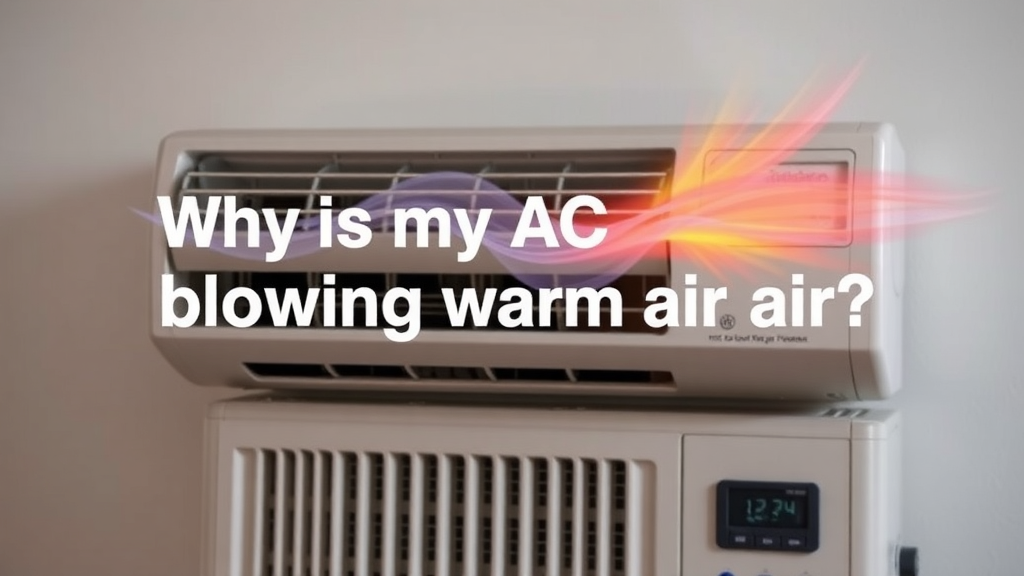
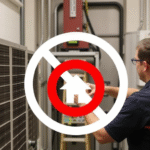
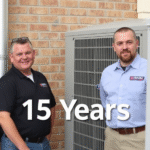
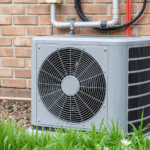

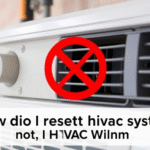
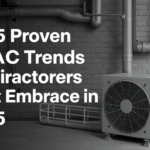
Leave a Reply